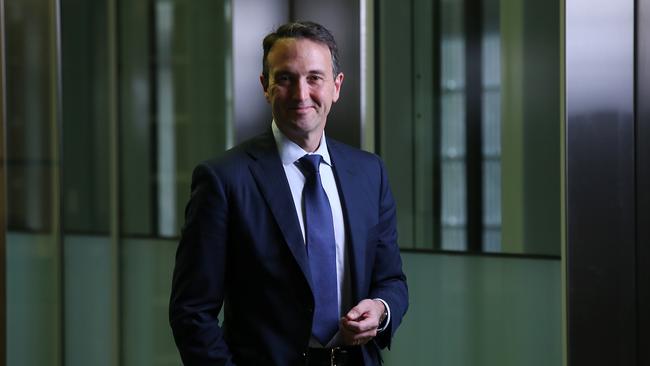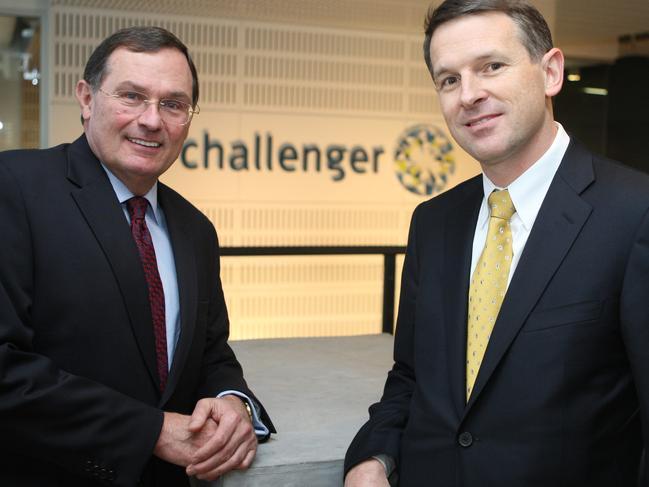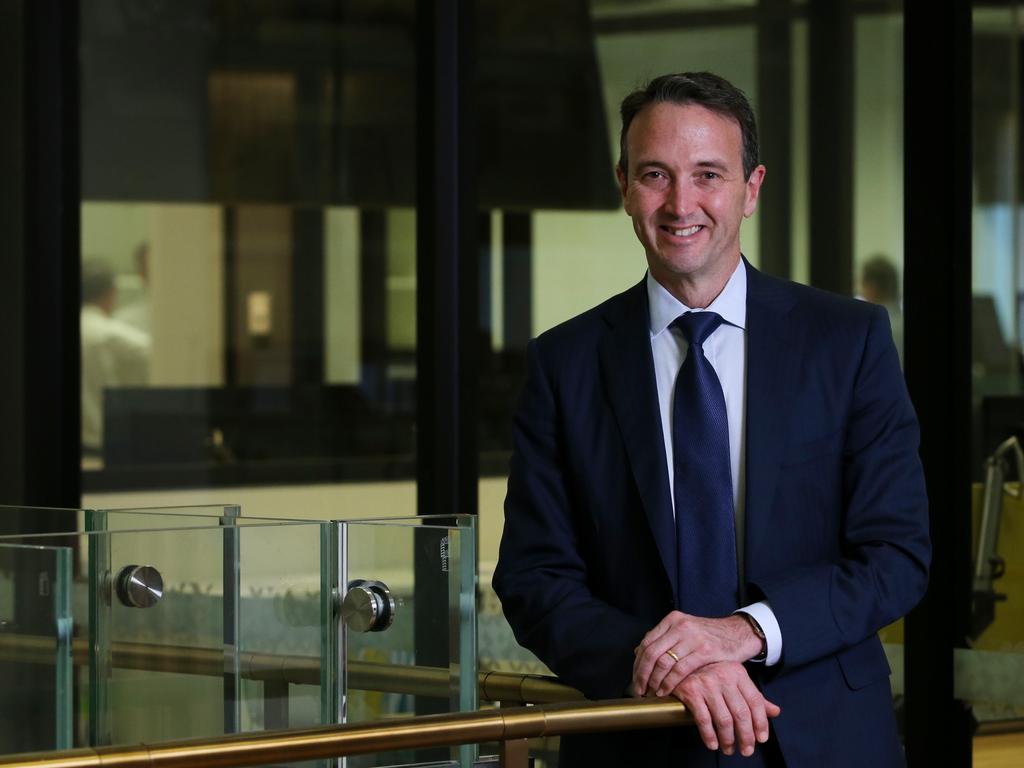
Howes has had a tough three years in the job, with the company’s stock price underperforming the market by 85 per cent.
Over this period he has of course collected around $5m as part of his stipend for running the company, plus some stock which is still sitting there.
Prior to taking on the top job he was an active trader in Challenger stock, or more to the point, an active seller.
The poor market performance included three profit downgrades, but Howes was bullish in delivering his final full-year profit report on Tuesday.
Howes worked at BT with his Challenger predecessors Brian Benari (now at Barrenjoey) and in particular was close to now ASX boss Dominic Stevens.
Their paths all crossed in the late 1980s and early 1990s when BT was Australia’s top investment bank before, ironically enough, being overtaken by Macquarie Bank.
When all three were together at Challenger the troika effectively ran the shop on a team basis under Stevens’ leadership.
Just what has prompted Howes to quit Challenger earlier than expected is nothing other than simply having had enough of running the company.
He won’t say where he is going other than the education sector and at just 51 years of age has plenty of time to try something new.
After 18 years at Challenger he deserves a break. he had a tough three years as boss, starting with a downgrade in his first months on the job.

Benari held the top job for seven years and before him Stevens for five years.
Howes was not specific about any new role but it’s said to be in the philanthropic sphere.
His move comes just weeks after Athene Holding and its private equity arm Apollo acquired a 15 per cent stake in Challenger from Caledonia, to lift its holding to 17 per cent.
Those who know say the two events are not linked and Howes simply had enough and wanted out.
The fact he is nominally in the job until March next year suggests he wasn’t pushed.
Challenger sells its annuities primarily through the wealth manager platforms that took a beating from the financial services royal commission.
This negative was later made worse by the Covid mayhem in financial markets last year before the rally.
But Howes has ridden the recovery well, and through the recent purchase of a small banking arm MyLifeMyFinance Bank, has added some diversity to earnings.
As a nominated internal successor, Plater is well known in the Sydney arts scene through his partner, Archibald Prize-winning artist Del Kathryn Barton.
He also did time at BT and Zurich Financial services, the Challenger training grounds, so the tradition continues even though the ruling troika have left the shop.
Challenger chair Peter Polson has served in the job for over 16 years, which on any measure is too long, but the change in chief executive will probably see his term extended. Polson was effusive in his praise for Howes, saying he had shepherded the company through a tough period but had positioned it well for the future.
Plater is the chair of the life business investment committee and also runs its operations and technology functions.
The company reported a normalised profit before tax of $396m and declared a dividend of 20c a share, up 14 per cent on the year ago return.
Its stock price was down 1.9 per cent at $5.89 at the close, reflecting the uncertainty at the change of management.
–
Transurban trauma
Transurban fell another 2.6 per cent Tuesday to a new low since April last year of $13.66 after disclosing a $3.3bn cost overrun on the $6.7bn West Gate tunnel project.
The company is in the midst of negotiations between CIMIC and the Victorian government over who picks up the cost on the $6.7bn project.
A reward for Transurban was to be an extension of its monopoly on the Citylink road to Melbourne Airport for another 10 years to 2045. The real issue is at month’s end when the NSW government is due to run an auction between a Transurban consortium and IFM over the sale of another 25 per cent of its WestConnex toll road in Sydney.
The price tag is around $6bn.
The plan is that once the price for that stake is known bids will open for the final circa 25 per cent which will fetch about the same.
Transurban already controls 51 per cent of the project and 11 of the 15 current and planned toll roads in Sydney.
Citi is running the auction for NSW while Morgan Stanley, Barrenjoey and Macquarie are advising Transurban.
Transurban’s Scott Charlton has already said he will have an equity issue if he wins the bid, which is where the problem lies.
He has flagged being on the hook for at least $1bn extra on Westgate but in reality that figure is just part of his negotiating with Victoria and CIMIC, so the question is how much is he really on the hook for.
When shareholders are being asked to hand over more money to fund the monopolist’s control of the Sydney toll roads it helps if they know where they stand with Westgate.
Right now they don’t.
–
Well connected
Most things within NBN boss Stephen Rue’s command are going well, with connections up 13 per cent to 8.2 million premises and revenue up 21 per cent to $4.6bn.
The government-owned broadband provider has repaid $6.3bn of the $19.5bn lent to it by Canberra and revenue rose 21 per cent to $4.6bn.
Last financial year the company paid Telstra (mainly) and Optus $1.5bn for their customers, who transferred from their lines to the NBN.
From now to 2047 NBN will be transferring $1bn a year to Telstra to pay the rent on its wire ducts.
That figure is part of Telstra’s annual revenues of around $26.2bn in income and $8.9bn in earnings before interest, tax, depreciation and amortisation.
The rental payment won’t feature loudly in the Telstra profit report, which this year will put earnings somewhere in $7.2bn territory.
This compares with 2016 earnings of $10.5bn on $27bn in income, which is more like a downward spiral than a growth story, but maybe the next few years will be better.
NBN’s average revenue power user at $45 is a touch below the $47 line in the sand but the big unknown is just how its numbers look after the present ACCC pricing review.
–
Disclosure debate
Big business has come down loudly in support of the government’s tighter continuous disclosure laws, which have launched the honest idiot’s defence.
To win a case for continuous disclosure you need to prove the board knew about the issue or was reckless or negligent.
Directors – as the shareholder’s representatives – are paid to know what is happening but the Australian Institute of Company Directors and Business Council and others say the new rules passed into law this week simply put Australia on the same page as Britain and US.








The former Bankers Trust cabal running Challenger continues, with Chris Plater to serve as deputy chief executive after Richard Howes’ shock decision to quit as boss in March next year.